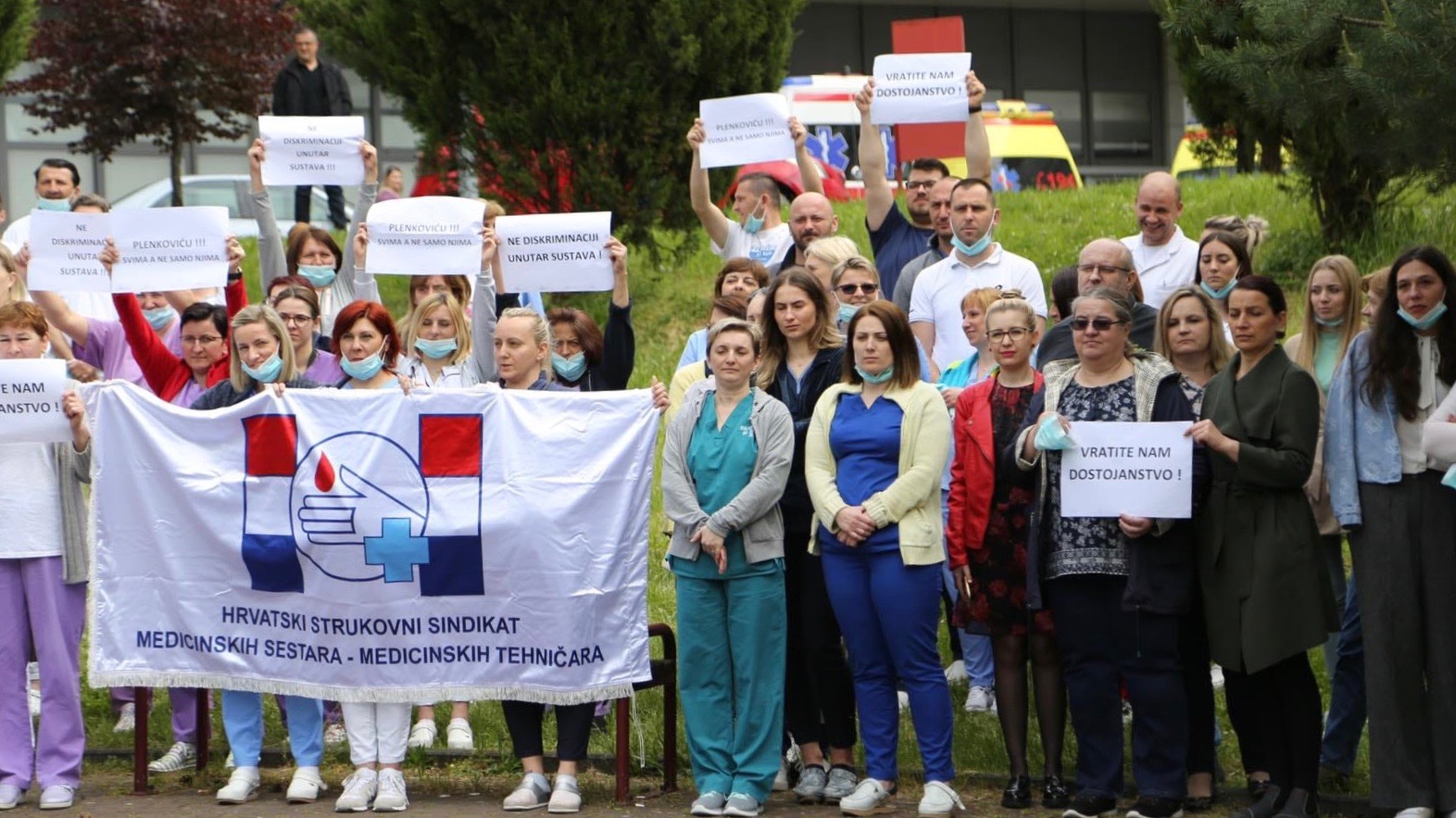All health and allied workers deserve equal appreciation, stated a coalition of trade unions and professional associations during a protest held in Zagreb on Thursday, May 11. Croatian Minister of Health Vili Beroš recently signed off on an increase of physicians’ rights, but is refusing to do the same for others in the sector. Instead, he announced that ambulance drivers, nurses, cleaners, and others would do better to put their trust in a prolonged collective bargaining process and hope to see improvements at the beginning of next year.
According to Beroš, there is not enough money to meet the workers’ demand for an all-sector 10% increase of salary coefficients. The minister also said that nurses’ income has grown between 3-5% in recent months, expressing his doubts about the legitimacy of their current actions. Yet, trade unionists have pointed out that the increase Beroš is referring to is actually a reintroduction of rights suspended during previous economic crises.
The government’s unwillingness to discuss the workers’ demands was met with dismay both among the trade unions and by the public, which largely supports the idea of securing adequate salaries in the health sector. At the moment, cleaners in some public healthcare institutions earn less than the national minimum wage of 560 euros (USD 612). Nurses’ basic salaries in hospitals stand at around 900 euros (USD 984), which is not enough to cover all living expenses in the context of rising prices.
Eager to see the situation change, health and allied workers have begun building a unitary initiative to advocate for improvements of working conditions for all. They are glad to see that the physicians’ actions were successful, but remain concerned about the different treatment that the doctors are getting. “Preferential treatment does not help. It’s fair that doctors have been granted improvements to their status. But what is not fair is that the ministry is not approaching all the other health workers in the same way,” said Gordana Kucljak, shop steward of the Croatian Trade Union of Nurses in Vinkovci General Hospital, to People’s Health Dispatch.
Watch: Doctors in Croatia stand up for a better public health system
The atomization of the health workers’ movement has been a long term problem in Croatia. Physicians’ trade unions and associations have been known to distance themselves from other health workers. They insist that the role they play in the sector is of singular importance and deserves separate attention, although they have expressed support for the other workers’ protests. “Nurses, midwives, and all the other workers in the health system play an equally important role in the provision of care like physicians. Doctors are not the only pillar of the health system,” says Kucljak.
The new initiative has brought together nurses and midwives, laboratory technicians and ambulance drivers, cleaners and cooks. “It’s not the trade unions alone, either,” points out Kucljak. “Professional organizations like the Chamber of Midwives and the Nursing Council are part of this, too,” she says.
In case the minister is not ready to sit down with the workers’ representatives after the May 11 manifestation, the coalition is ready to take actions further. “In case the protest is not enough to bring the minister to the negotiating table, he will be looking at a possible strike of health and allied workers at the end of May,” says Kucljak.
People’s Health Dispatch is a fortnightly bulletin published by the People’s Health Movement and Peoples Dispatch. For more articles and to subscribe to People’s Health Dispatch, click here.





